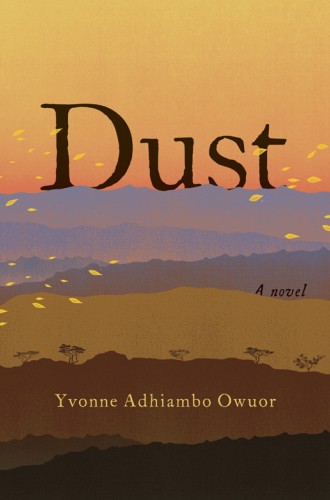Dust, by Yvonne Adhiambo Owuor
In this mystical and lyrical novel by Kenyan writer Yvonne Adhiambo Owuor, a woman returns to her childhood home in northern Kenya to bury her brother, who has been killed by police. The home is haunted by ghosts—literal and figurative—and her parents seem choked and misshapen by the secrets they have never told. History, politics, and the desire for revenge shape every corner of this place that is seemingly forgotten by time. But the past lives on in the people, most of whom forget and forgive nothing.
Arabel Ajany Oganda escaped this dust patch when both she and her brother left in search of economic success. She went to Canada and then to Brazil, pursuing the gods of opportunity as far from Kenya as she could go. Her brother went to Nairobi, where he became involved in a fight for justice that endangered his life. Ajany is called home by news of her brother’s death, and when she returns to her parents’ plot of land, she finds it on the verge of disintegration, her parents unable to move beyond their personal tragedy.
Meanwhile, a man who is a stranger to her is also traveling to her family’s land—from England—in search of her brother and in search of a record of his own father, whom he believes died in her family’s home. When Isaiah and Ajany meet, the two do not trust each other, but they do need one another to unravel the mysteries of their interrelated families. They gradually become partners on a search to understand and integrate their parents’ violent histories. Dust begins on a street in Nairobi and ends on Ajany’s ancestral land, which she has reclaimed and will inherit. We have the feeling that whatever Ajany and Isaiah will make together is better than what Ajany has chased across the globe and better than what her parents have bequeathed her.





